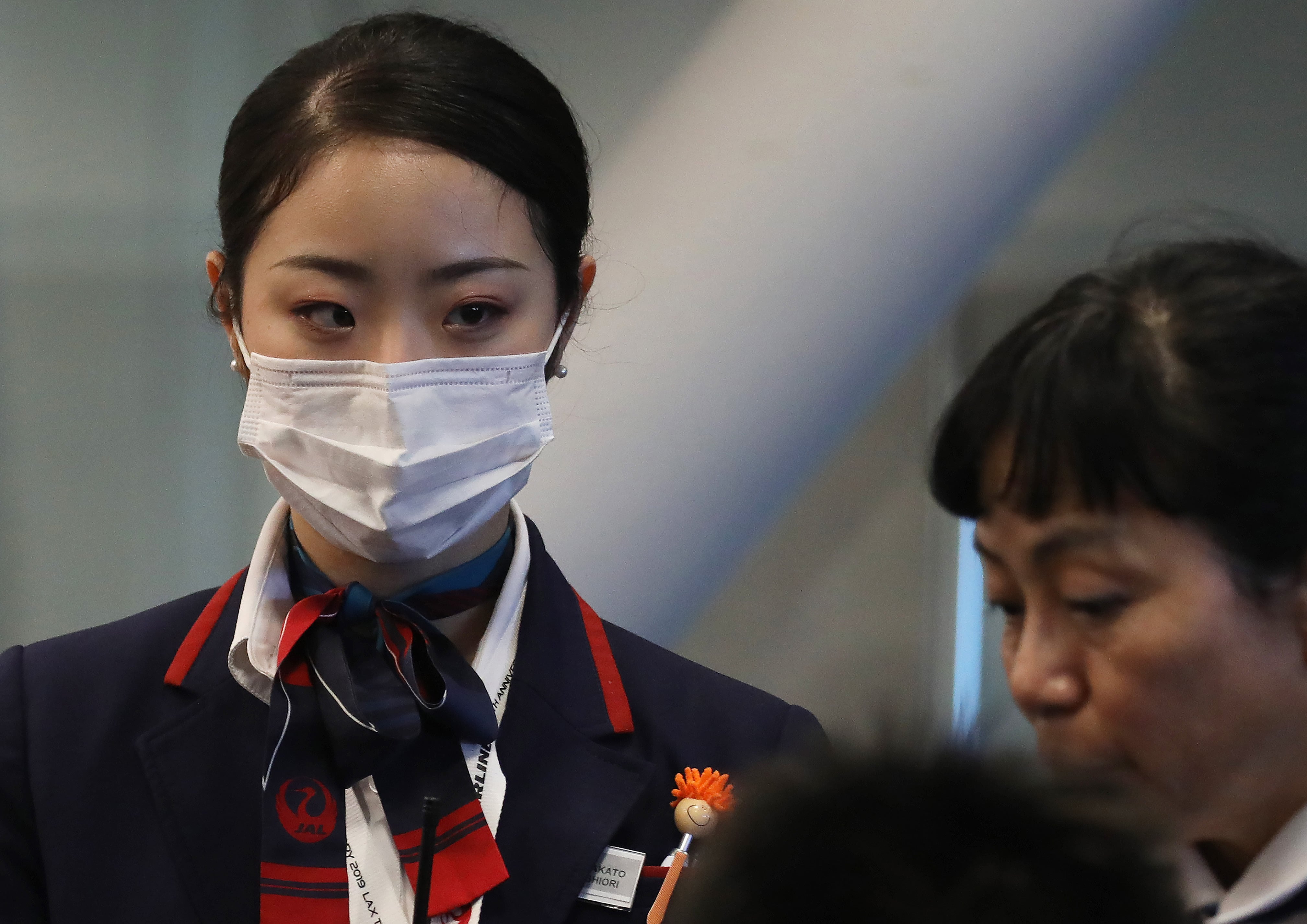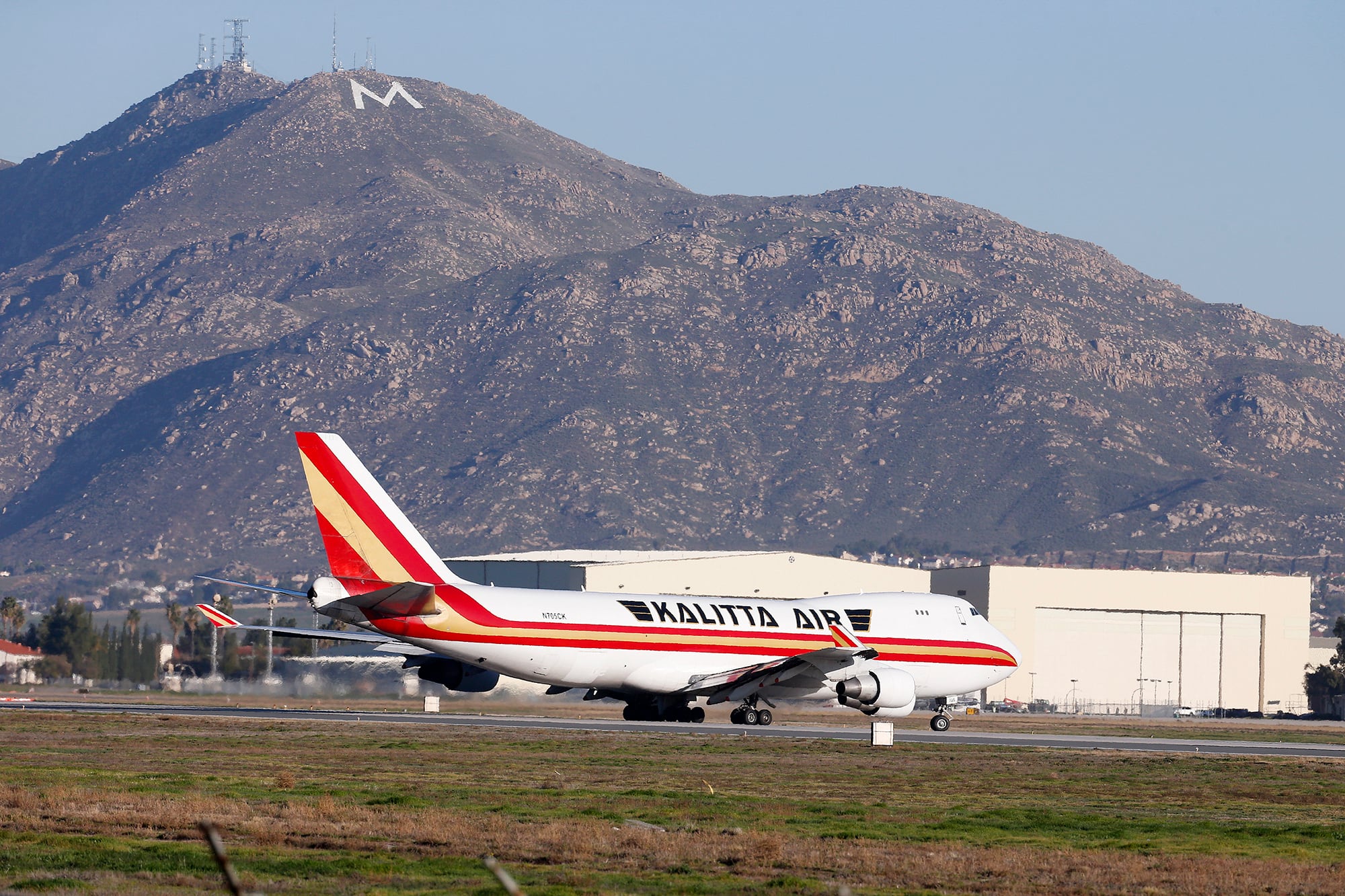A charter flight carrying 210 evacuees from Wuhan, China, landed at March Air Reserve Base in Riverside County, California, Wednesday so passengers could be safely screened for the coronavirus.
The aircraft, carrying U.S. State Department employees, family members and citizens, touched down at the reserve base shortly after 8 a.m. local time. It originally was slated to travel to Ontario International Airport, about 25 miles away. No reason was given for the diversion.
Base personnel provided air traffic control, landing and taxiing guidance but will not be in contact with any passengers, who were offloaded and screened by Centers for Disease Control and Prevention and local public health officials for the new virus, now responsible for sickening more than 6,000 people worldwide and killing more than 130 people in China.
An area was cordoned off and is being monitored by federal marshals to ensure that base personnel and passengers remain separated, according Dr. Chris Braden with the CDC.
“March Air Reserve Base and the Department of Defense (DoD) stand ready to provide housing support to Health and Human Services (HHS) as they work to handle the arrival of nearly 200 people,” Defense Department Press Secretary Alyssa Farah said. “DoD has assessed this support will not negatively impact readiness or critical operations, and we stand ready for their arrival.”
RELATED

According to the CDC, the passengers, which include children ranging in age from one month through their teens, previously were screened prior to takeoff, while on the flight and during refueling at Ted Stevens International Airport in Anchorage, Alaska. They have been asked to stay for three days and may remain at the base up to 14 days — the virus’s estimated incubation period — during which they will be monitored at least twice a day.
CDC officials are not calling the three-day hold a quarantine, because the passengers aren’t t required to obey it. All, however, have volunteered to stay out of concerns for their own health, Braden said.
If they choose to travel elsewhere, they will be monitored by local public health officials up to 14 days.
“What we try to balance is how to respect these people, restrict their rights and still be very careful with the evaluation we give them so everyone is protected,” Braden said.
The sprawling, 2,169-acre March Air Reserve Base is home to the Fourth Air Force and the 452nd Air Mobility Wing.

On Tuesday, Department of Health and Human Services Secretary Alex Azar called the coronavirus, 2019-nCoV “potentially a very serious public health threat,” but added that “at this point, Americans should not fear for their safety.”
The disease has spread to 18 countries, sickening at least 60 patients, most of whom had traveled to China.
Roughly 1,000 Americans live in Wuhan; those evacuated on the flight were considered most at risk, according to officials.
On Friday, the Defense Health Agency issued guidelines for service members and Tricare beneficiaries to follow to contain the spread of any virus, including influenza and those responsible for the common cold.
Ill people should stay home and avoid contact with others, according to Defense Health Agency preventive medicine physician and epidemiologist Lt. Cmdr. David Shih, a member of the U.S. Public Health Service Commissioned Officer Corps.
If they aren’t able to self-isolate, they should wash their hands frequently or use hand sanitizer, and cough or sneeze into tissues or their sleeves and not their hands.
Sick troops can take steps “to avert hindering readiness by making their battle buddies sick,” Shih said.
Patricia Kime is a senior writer covering military and veterans health care, medicine and personnel issues.





